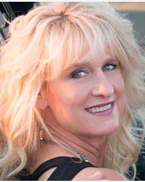 As the Public Health Education Specialist for the WIC (Women, Infants & Children) program and the Opioid Task Force in Butte County, California, Stacy Piper, CLEC, acts as a regional liaison with the medical community as well as coalition's and various community partners. Learn more about Stacy in the bio at the end of this piece. Tags: Detailing Visits, Opioid Safety, Substance Use, Training NaRCAD: Hi, Stacy! Thanks for joining us. Tell us a little bit about your work—we understand you, like many folks in public health, wear multiple hats. As the Butte County Public Health Education Specialist for the WIC (Women, Infants & Children) program and the Opioid Task Force in Butte County, I act as a liaison with the medical community. I collaborate with hospitals, health care providers, public health programs, and community organizations to improve public health and continuity of care. 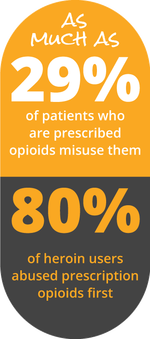 NaRCAD: Talk to us about detailing for the opioid crisis—you do this 1/4th of your time. How did you get started? After providing educational detailing for the WIC Program funded at 30 hours a week, I was asked to be an Opioid Academic Detailer for Butte County. In preparation, I attended the Academic Detailer Training in San Francisco. The training provided by the CA Health Department, San Francisco Public Health Department's Substance Use Research Unit, and NaRCAD was one of the finest training experiences - even after the countless hours of extremely comprehensive training I received in the Pharmaceutical Industry. Regarding impact on a local level, it is indescribable how every interaction with a healthcare provider is beneficial. Academic Detailing (AD) is an equal exchange of information. I consider it a huge responsibility, and a privilege, to be an educator for doctors and medical professionals. I prefer the word “educator” instead of “detailer” because I have concerns that a “detailer” may be initially viewed as a salesperson. I love and respect that AD is not driven by attempting to influence medical professionals for personal gain. It’s all about helping providers improve health outcomes in patients with the entire focus of the conversation about the real people in their practice that need help. 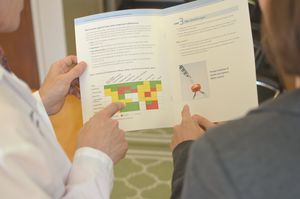 NaRCAD: Tell us a little about your background in pharma, and how this translates to your detailing work now. I was a Senior Executive Pharmaceutical Sales Representative for 15 years in Northern California, advocating for immunizations and promoting various prescription drugs. This provided first-hand experience of the astonishing evolution in the Medical, Pharmacy, and Insurance industries. Understanding the basic dynamics of medical offices has helped me navigate and gain access at a quicker pace for AD. Also, understanding the business acumen component of running a medical practice has proven to be valuable in my recent interactions. 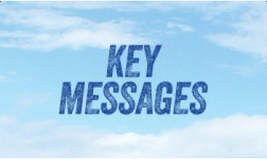 NaRCAD: You mentioned that you’re committed to providing value for clinicians and patients alike. Talk to us about how you share key messages with the clinicians you visit. In my experience, to truly influence the behavior of a highly-educated and experienced individual, you must come to the table with the goal of learning. With attentive listening, you ‘hear’ the medical professional, and process what you have learned. Your intuition will guide you to ask the appropriate, insightful questions needed to evaluate his/her priorities and challenges. This is a beautiful thing, because trust starts to blossom and the partnership has begun. You can then confidently tailor key messages, valuable resources and solutions that are closely tied to those needs and challenges you uncovered. You should begin to see the individual’s genuine desire to truly change behavior and habits. 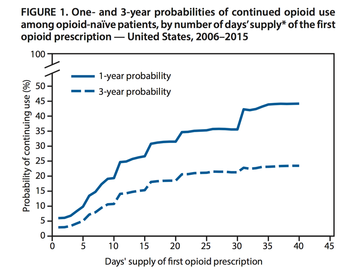 NaRCAD: Talking about opioids is a sensitive topic. What’s some of the typical pushback you get from clinicians you detail about opioid safety? The response to academic detailing really depends on the situation and the type of clinician and/or establishment I am working with. Sharing local opioid statistics compared to our state statistics is an eye opener! I try to paint real life pictures by telling true stories. For example, I’m honest about my own family members who were innocently caught up in this crisis, including the true story about the day my sister’s husband accidentally took his prescribed opioid medication twice. My sister lost her husband that day. 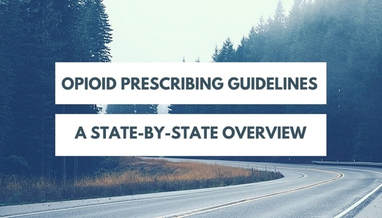 NaRCAD: Along with telling true stories, how do you handle pushback and stay positive, encouraging clinicians to pivot? Time, or lack of time, is the biggest culprit in keeping physicians from attempting to personally assist in ending the addiction cycle for patients. I passionately believe clinicians need more time with people on opioids. It takes several visits with an office to start moving in the right direction. Working with the medical assistants, nurses, and/ office managers is a key component. They can often have influence, give advice or insight, and even advocate when you are not there. Also, I review our county’s Safe Prescribing Guidelines. If clinicians cannot institute all items in the guidelines, I ask providers to choose what they can commit to doing and to think about some specific patients they can work with. I also ask them to consider prescribing Naloxone for patients on high doses of opioids (above 50 morphine milligram equivalents).  NaRCAD: What would you share with new detailers who are about to go into the field and use AD to tackle the opioid crisis? I have a few reminders and tips for detailers:
Biography.
Stacy M. Piper, CLEC, Public Health Educational Specialist Butte County California Public Health Department As a Public Health Education Specialist, Stacy was chosen to work with two CA State grant funded programs educating Medical Professionals, Hospitals and Community Organizations for the WIC Program and the Opioid Drug Abuse Prevention Program. She maintains an active involvement with the Butte County Opioid Task Force, as well as the Butte County Drug Addiction Prevention Coalition, ACE’s Coalition (Trauma Informed), Breastfeeding Roundtable Coalition, Butte County Breastfeeding Coalition, Mother Strong Coalition, and Perinatal Coalition. Stacy has had extensive training with the California Department of Public Health's Opioid Stewardship & Chronic Pain Detailing Program, ID Training, UCSD CLE (Certified Lactation Educator), Coalition & Equity Training, Advocacy Training and holds 14 years of ongoing training & certification in the Pharmaceutical Industry. She is a member of the team coordinating and orchestrating the 2018 Northern California Opioid Summit. Comments are closed.
|
Highlighting Best PracticesWe highlight what's working in clinical education through interviews, features, event recaps, and guest blogs, offering clinical educators the chance to share successes and lessons learned from around the country & beyond. Search Archives
|
